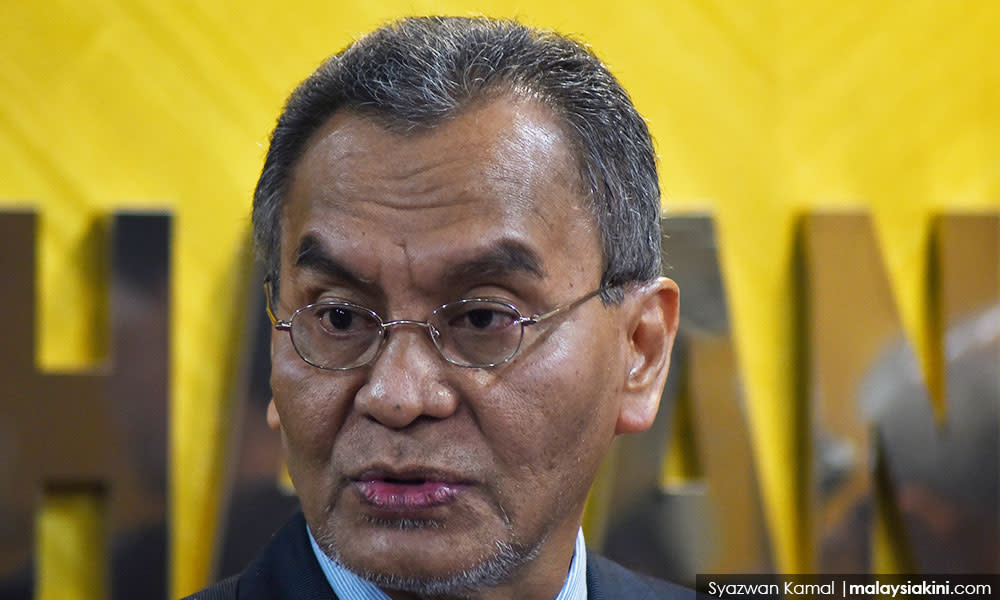Selangor hamstrung as Covid-19 data-sharing halted

COVID-19 | The Selangor state government is currently “boxing blindfolded” in its Covid-19 response after the Health Ministry allegedly stopped sharing crucial data on positive cases.
This is according to sources as well as officials who were tasked by the state government to plan and execute public health strategies to battle the pandemic.
It was learned that since the first week of October, the Selangor Task Force for Covid-19 (STFC) no longer received granular data from the Health Ministry, thus hobbling its efforts to contain the outbreak.
Those efforts include shutting down premises where outbreaks have been detected, carrying out contact tracing and providing free tests for high-risk areas.
Confirming this, STFC chairperson Dr Dzulkefly Ahmad (above) said the decision to halt data-sharing at a time when cases in Selangor were rising was greatly hurting the state government’s efforts to fight Covid-19.
"You asked us to box in the ring, but you blindfold us. That is how we feel now," he said when contacted.
"We need the granularity of the details on the ground for us to do targeted testing, among others.
"Data is important because this is what we call data-driven mass testing. The more granular, and the richer we are data-wise, the more accurate our analytics and action planning would be," said Dzulkefly, who was the health minister during the Pakatan Harapan federal administration.
Malaysiakini has contacted the Health Ministry on the matter.
Selangor now relies on Health DG’s press statements
Another source at STFC told Malaysiakini that the task force is now given only "two to three" data variables out of about 43 that the federal ministry has on patients.
"The paucity of information makes us lose visibility of cases, halts our strategic mapping, undoes our zone profiling, makes Selangkah contact tracing ineffective, and halts our active community screening strategy," another source said.

The source added that recently, the STFC has had to rely on Health Ministry director-general Dr Noor Hisham Abdullah's daily press briefings for data, “after the damage has been done”.
Confirming this, Selangor state executive councillor in charge of health Dr Siti Mariah Mahmud told Malaysiakini: “We only get what the public gets.”
Siti Mariah last week went public on how the state government’s request to integrate Selangkah with MySejahtera has been “refused”.
Selangkah is Selangor's Covid-19 contact tracing application, which was launched before the federal government’s MySejahtera.
Siti Mariah said when MySejahtera was rolled out, most premises stopped displaying the Selangkah QR Codes, thus limiting the data available to the state government.
"We have asked for integration, but have been refused. I don't know on what basis," Siti Mariah said told Astro Awani's "Consider This" show last week.
She said among possible reasons is that Selangkah is not a Health Ministry asset.
"If Selangkah is upgraded, we can know which premises have been sanitised, which premise is crowded, so on and so forth," she said.
“We’ve been asking for integration of SELangkah into MySejahtera. But it’s been refused,” @melisa_idris & @SharaadKuttan speak to Selangor Health Exco @DrSitiMariah about sharing contact tracing data. Watch the #ConsiderThis episode at https://t.co/wXivkXrvkp pic.twitter.com/zTCnDRdwXw
— 🇲🇾Astro AWANI🇲🇾 (@501Awani) October 14, 2020
Selangor has the second-highest number of Covid-19 cases in the country with 3,250, behind Sabah which has so far recorded a total of 7,439 cases.
Five of Selangor's nine districts have been declared as red zones by the Health Ministry, with Petaling the worst hit with 342 cases, followed by Klang (162).
The ministry classifies red zones as districts that have more than 40 new cases in the past 14 days.
This has been revised from the previous measure, which looked at the number of cases in treatment within a district.
Selangor is currently under a conditional movement control order (CMCO), enforced by the federal government after the state continued to record a spike in the number of cases since late last month.


